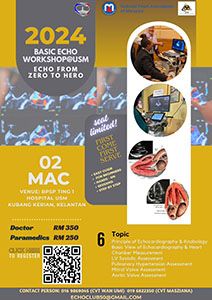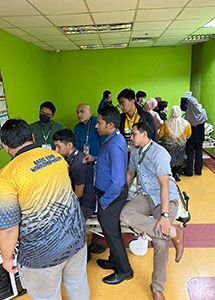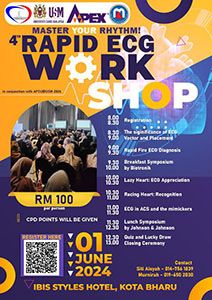Cardiology Unit provides experiential learning for undergraduate medical student and postgraduate trainee. The student experience encompasses a diverse array of cardiology services, providing a comprehensive and thorough educational journey.
Masters of Medicine (Int Medicine)
Master of Medicine (Int Med) candidate undergo a 12-weeks rotation in cardiology as a part of the requirement.
During this period, trainees are exposed to inpatient-care concerning patients with cardiovascular diseases. Trainees are given the chance to oversee patient-care procedures in a coronary care unit (CCU) and cardiac rehabilitation ward (CRW) setup while under supervision.
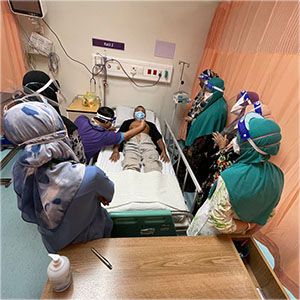
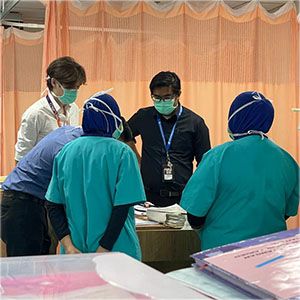
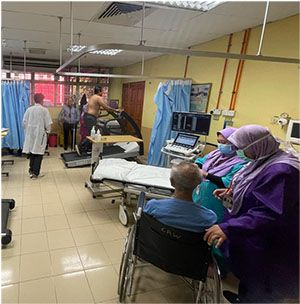
Additionally, trainees assist patients at the Cardiology Clinics. Various clinics with distinct specializations exist, including the Heart Failure Clinic, Post Discharge Clinic, and General Cardiology Clinic. The latter facility gives students exposure to a wide range of cardiovascular conditions, from ischemic heart disease to hypertension, giving them a strong foundation in general cardiology.
Essential skills in echocardiography and exercise stress testing are taught to students, including how to conduct and interpret simple echo investigations. This is essential for the prompt identification and treatment of cardiovascular diseases, particularly in cases of emergency such as infective endocarditis, ventricular septal defect, and cardiac tamponade.
The purpose of the written and practical exams that students take near the end of each clinical posting is to evaluate their clinical knowledge, skills, and decision-making abilities in accordance with recent best practices and recommendations.
Students are also exposed to cutting edge interventional cardiology at the same time..
Fellowship in Cardiology
For individuals seeking even more specialization in cardiology, the Cardiology Unit also provides fellowhsip in Cardiology Subspecialty Training Program. Complete instruction in invasive and non-invasive cardiology methods is provided, guaranteeing that graduates of the program will be well-rounded cardiologists with up to date knowledge.
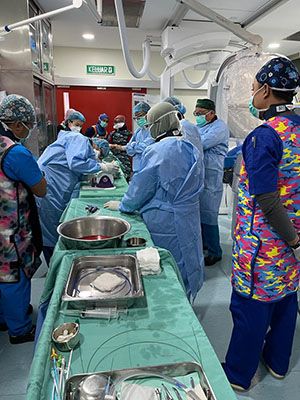
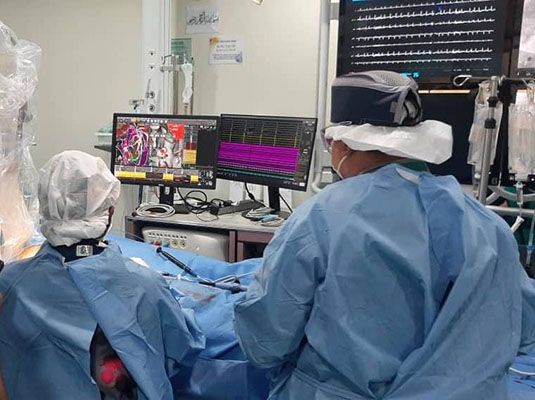
During their training, trainees are exposed to invasive cardiology procedures, such as:
- Cardiac catheterization: They gain practical experience in diagnostic and interventional catheterization techniques, such as balloon angioplasty, stent insertion, and coronary angiography.
- Electrophysiology: Instruction in sophisticated arrhythmia management techniques, such as ablation operations.
- Implantation of pacemakers and implanted cardioverter-defibrillators (ICDs): extensive exposure to device implantation and post-implant care.
Non-Invasive Cardiology Training includes:
- Basic and Advanced Echocardiography: Builds upon the foundational echo abilities through instruction in 3D imaging, stress echocardiography, and transesophageal echocardiography (TEE).
- Holter Monitoring and Stress Testing.
- Cardiac MRI and CT.
Seminars and Workshops
Periodically, seminars and workshops have been held to disseminate knowledge to a broader audience.
